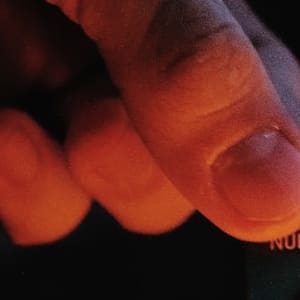no dice: Idiom Meaning and Origin
What does ‘no dice’ mean?
The idiom "no dice" means that a request or suggestion has been rejected or denied, indicating that the desired outcome will not occur.

Idiom Explorer
The idiom "roll the dice" means to take a risk or make a decision without knowing the outcome or consequences.
The idiom "roll of the dice" means taking a chance or accepting a situation where the outcome is uncertain and unpredictable.
"Out of luck" means to have no good fortune or opportunities, often due to circumstances beyond one's control.
The idiom "on a losing wicket" means being in a situation where success is unlikely or the odds are against you.
The idiom "nowhere to be found" means that someone or something cannot be located or is completely absent.
The idiom "no ways" is used to express strong disbelief or refusal towards something. It indicates a firm stance or disagreement and is often used as a response to a suggestion or proposal.
The idiom "no way" is used to show strong disbelief or refusal towards something. It expresses a complete lack of possibility or chance for something to occur or be true.
The idiom "not worth a dime" means something or someone does not have any value or is not valuable. It suggests that the thing or person is not worth even a small amount of money.
The idiom "not want to do that" is used to indicate a strong aversion or unwillingness towards a particular action or situation.
The idiom "not on your life" means absolutely not or under no circumstances. It is used to strongly deny or reject a request or suggestion.
Unexpected Origins
The idiom "no dice" is often used to express a refusal, rejection, or a lack of success. It emerged in the early 20th century and is believed to have originated from the world of gambling. Specifically, it is thought to have its roots in the game of craps, a popular dice game in the United States during the 19th century.
In the game of craps, players would roll dice to determine their outcome. If the result of the roll was not favorable, the phrase "no dice" would be used to indicate the lack of success. Over time, this phrase gained a figurative meaning beyond the realm of gambling and is now commonly used in everyday conversations to reject a proposal or request.
For example, if someone asks for a favor and the other person declines, they may respond with a simple "no dice." The phrase has become ingrained in American English vernacular and is frequently encountered in various contexts, such as casual conversations, books, movies, and other forms of media.
The idiom "no dice" has become widely understood and accepted by native English speakers. Its longstanding usage highlights its enduring relevance and its place within American idiomatic expressions.
Related idioms that share similar meanings to "no dice" include "no joy" and "no chance." Each of these idioms conveys a sense of refusal, rejection, or a lack of possibility.
"No joy" is another informal expression used to indicate a negative outcome or a lack of success. It can be used in situations where someone is hoping for a positive result but is ultimately disappointed. For example, if someone is searching for a specific item but is unable to find it, they may say "no joy" to convey their disappointment.
The phrase "no chance" is also commonly used to indicate a lack of opportunity or possibility. It is often used to dismiss the likelihood of something happening or to express a refusal. For instance, if someone asks if they can borrow money and the other person is unwilling to lend, they may respond with a straightforward "no chance."
While each of these idioms has its own unique origin and usage, they all share a common theme of conveying refusal, rejection, or a lack of success. They are all informal expressions that have become part of everyday conversations and are understood by native English speakers.
When editing articles about idioms, it is important to consider the clarity, structure, and style of the writing. Following AP style guidelines, introductory or summary paragraphs should be omitted to get straight to the point. Paragraphs should be kept short, consisting of 2-3 sentences, and sentences should be concise and use simple words and phrasing to enhance readability.
When it comes to style, a conversational tone and friendly, informal language should be used to engage the reader. A variety of language should be employed to keep the article interesting and engaging. It is also important to avoid repetition and to rephrase sentences to improve the flow of the article.
Grammar, phrasing, and tonal mistakes should be fixed to ensure accuracy and coherence. The active voice should be used to make the writing more dynamic and engaging. By following these guidelines, an editor can improve the clarity, structure, and style of an article about idioms like "no dice," "no joy," and "no chance."
Example usage
Examples of how the idiom *no dice* can be used in a sentence:
- No dice, I already tried calling them but couldn't reach anyone.
- I asked my boss for a raise, but it was no dice.
- We tried to convince our friend to come to the party, but he said no dice.
More "Rejection" idioms



